

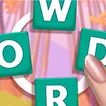
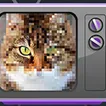
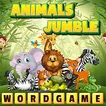
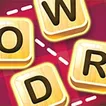
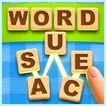

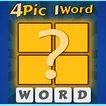
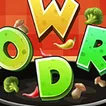
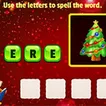
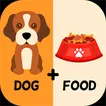
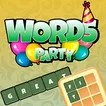
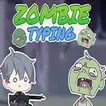
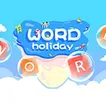
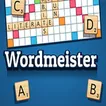
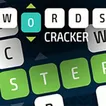
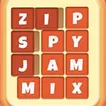



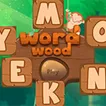
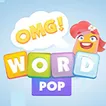
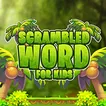
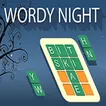
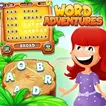
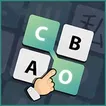
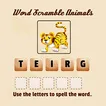
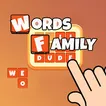

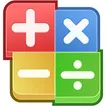

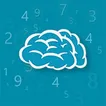
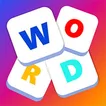

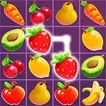



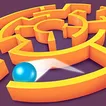
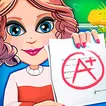
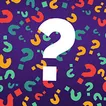



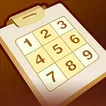
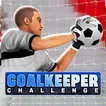


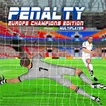



















Engaging in Spelling Games: Boosting Language Skills and Cognitive Development
Spelling games have long captivated audiences of all ages, weaving the joy of play with the rigors of educational pursuit. These games are more than mere pastimes; they are a bridge to enhanced language skills and cognitive growth. Research underscores the myriad benefits of engaging with words in a playful context, including the sharpening of memory, the broadening of vocabulary, and the honing of strategic thinking abilities.
Learners, from children grappling with the basics to adults polishing their lexicon, find in spelling games a platform that is both challenging and rewarding. The act of spelling itself is a cognitive exercise, one that requires the brain to recall specific letter patterns and sequences, thereby reinforcing memory pathways. As players encounter new words, their vocabulary naturally expands, fostering a deeper understanding of language and its nuances.
Moreover, spelling games often incorporate elements of strategy, pushing players to think critically about letter placement and word construction. This strategic element not only makes the games more engaging but also stimulates problem-solving skills that are transferable to other areas of learning and daily life.
The educational value of spelling games is further bolstered by studies that link game-based learning with higher motivation and improved educational outcomes. By presenting spelling as a dynamic and interactive challenge, these games can transform a traditionally solitary study activity into a lively and social experience, thereby increasing engagement and retention.
In essence, spelling games are a potent tool in the arsenal of language education, offering a blend of cognitive benefits that can lead to a more profound mastery of the written word. As such, they remain an essential, and enjoyable, component of language learning strategies.
Discover Free Online Spelling Games: Learning and Fun Without Boundaries
The digital era has ushered in an abundance of free online spelling games, making learning accessible and enjoyable for anyone with an internet connection. These games serve as a vital resource for language acquisition and literacy, offering diverse approaches to mastering spelling in an engaging, interactive environment. They are particularly beneficial for young learners who are native speakers and language learners alike, providing a playful platform for vocabulary enhancement and spelling proficiency.
Free online spelling games come in various forms, from simple exercises designed for beginners to complex puzzles aimed at more advanced spellers. They encourage players to recognize patterns, identify correct spellings, and learn from mistakes in real-time, all within a supportive and entertaining framework. The immediate feedback and rewards systems inherent in many of these games serve to motivate learners, fostering a sense of achievement and a desire to improve.
These games are not just for individual play; many are structured to allow for multiplayer experiences, promoting social interaction and friendly competition. This aspect of communal learning can be particularly motivating, as players can challenge peers and share successes, further enhancing the educational experience.
For educators and parents, free online spelling games are a godsend, providing a supplementary tool to traditional teaching methods. They can be easily integrated into lesson plans or used as a fun homework assignment, ensuring that the learning process continues beyond the classroom.
In summary, free online spelling games are a testament to the power of technology in education. They break down barriers to learning, offering a limitless, cost-free resource that is as effective as it is entertaining. With the right balance of challenge and fun, these games are an invaluable asset for anyone looking to improve their spelling skills and language proficiency.
Maximizing Spelling Practice Through Engaging Game Formats
Spelling games come in a myriad of formats, each designed to captivate and challenge the mind in unique ways. Time-based challenges, for instance, put players’ spelling speed to the test, fostering quick thinking and rapid recall of vocabulary. These adrenaline-pumping games are not just thrilling but also sharpen cognitive reflexes and encourage the development of time management skills.
Word unscrambling games, on the other hand, present a jumbled array of letters that players must rearrange to form words. This format is particularly effective at reinforcing spelling patterns and word recognition, as it requires a deep engagement with the structure of words. Such games often serve as a fun puzzle, appealing to those who enjoy problem-solving and pattern recognition.
Other game formats include multiple-choice quizzes, where players choose the correct spelling from several options, and crossword puzzles, which blend spelling with contextual understanding. These varied approaches ensure that learners can find a game that resonates with their personal learning style, whether they are visual, auditory, or kinesthetic learners.
By integrating these different types of games into regular spelling practice, learners can keep their study sessions fresh and exciting. The diversity of game formats also helps to reinforce learning by approaching the same material from different angles, ensuring a more comprehensive grasp of spelling conventions.
Ultimately, the key to maximizing spelling practice lies in the balance between educational content and engaging gameplay. By offering a range of game formats that are as entertaining as they are instructive, spelling games can sustain learners’ interest and motivation, making the journey to language proficiency an enjoyable one.
Conclusion: The Lasting Appeal of Spelling Games and Future Trends
The enduring charm of spelling games lies in their unique fusion of education and entertainment. They have stood the test of time, continually adapting to the evolving landscape of learning and technology. The appeal of these games is rooted in their ability to make the mastery of language skills an enjoyable pursuit, a feature that ensures their ongoing popularity among learners of all ages.
Looking ahead, the future of spelling games is bright, with potential advancements poised to enhance the way we engage with language learning. Emerging technologies such as artificial intelligence and augmented reality offer exciting possibilities for personalized learning experiences and immersive gameplay. These innovations could tailor challenges to individual skill levels and learning styles, making spelling practice even more effective and captivating.
Furthermore, the integration of social features and global connectivity promises to expand the collaborative aspect of spelling games. This will not only make learning more interactive but also foster a sense of community among users worldwide, turning language acquisition into a shared journey.
As we move forward, spelling games will likely continue to evolve, blurring the lines between learning and play. They will remain a staple in educational environments, adapting to the needs and preferences of future generations, and preserving their place as a delightful and beneficial tool in the quest for language proficiency.